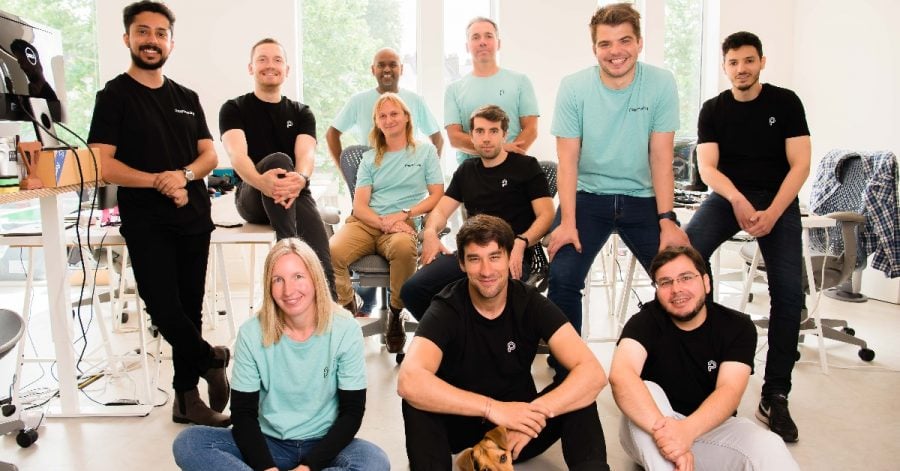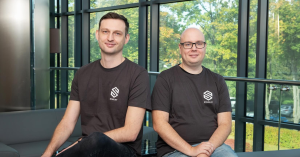Proportunity, a London-based startup with Romanian founders that provides home purchase equity loans with reduced risks, raised a €130M round combining debt and equity. Greek VC VentureFriends, Kibo Ventures, Anthemis, Amro Partners and Entrepreneur First participated in the round. Merging proptech and fintech, Proportunity has helped finance home purchasing worth €77 million so far.
The vision: Increasing the affordability of home buying
Worldwide, house prices are surging, and are heavily disproportionate compared to GDP growth, incomes, and rent. Since 2003, home ownership in the UK has been falling, reaching 63.9% in 2018, while the private rental market increased.
When the co-founder or Proportunity Vadim and his partner Julia looked for their first home back in 2016, they decided to avoid traditional estate agents and research the market themselves. Within a year of purchasing their home, they received an offer at 60% more than the buying price.
Knowing that the traditional property market works against rather than in favor of the buyer, co-founder Vadim Toader (CEO) and Stefan Boronea (CTO) decided to seek out a solution to release home ownership from the past. The big goal? Help 1 million people become homeowners by 2030.
“In a market where prices are skyrocketing compared to incomes, the Proportunity Loan becomes a necessity rather than an option for many who would otherwise be priced out of the housing market,” Vadim Toader tells The Recursive.
Proportunity tackles house buying affordability challenges by providing equity loans of up €178K (or 25% of the house price), which will add to the maximum mortgage they can get from traditional lenders, enabling buyers to borrow up to six times their income. In this way, the company wants to close the ~€120K-240K gap that keeps home buyers from acquiring the house of their dreams, says Vadim Toader.
Some market trends are also favorable. The lockdown brought by the pandemic raised interest in house ownership, especially in adding one additional room to serve as a home office. Moreover, Gen Z is steadily entering the housing market.
“The shift towards remote working recently has changed home buyers’ views on the property they should purchase, with a greater number choosing to purchase more spacious homes rather than small central flats, with gardens taking precedence over commute time. More and more buyers choose Proportunity to help them own a home they love, sooner as the affordability caps from high-street mortgage lenders make it impossible for them to borrow enough,” shares Vadim Toader.
To decrease the financing risk, the company uses machine learning technology to identify fair valued homes in areas with high growth potential, which also helps remove the need for a large deposit. Vadim Toader further explains that the Proportunity’s technology identifies areas with high growth potential before this happens by looking at microeconomic factors and changes in these factors throughout time:
“Multiple competing models analyze these patterns within factors determining area desirability (e.g. businesses in the area, crime or school rates) and are combined into a map of growth potential for each area we lend in. These are generally larger cities and commuter areas around them where affordability is an issue. Within these areas we identify properties that are fairly priced and would be great purchases for our customers,” adds Toader.
The next stage
“Proportunity is in the very attractive intersection between proptech and fintech, and contributes to generating positive impact in people by allowing first-time home buyers access to their dream homes,” said Javier Torremocha from investor Kibo Ventures.
The new funds will fuel the startup’s team expansion, but will also allow them to offer customers a loan size of up to €178K from €107K.
The company’s CEO further mentioned that, while at this stage, focusing on the UK market is key for the company’s growth, they already have a number of target markets ready for the next growth stages. “The fragmented nature of the Southeastern market makes it more difficult to create a product that works everywhere, but there are high-growth individual markets where buyers find it impossible to buy a home, and that’s where we can step in to help. Young people being locked out of the market is a generational problem, not a local one,” concludes Toader.
+++For insights into the latest developments and startups in the fintech ecosystem of SEE, check out our interview with Eleven Ventures.+++








